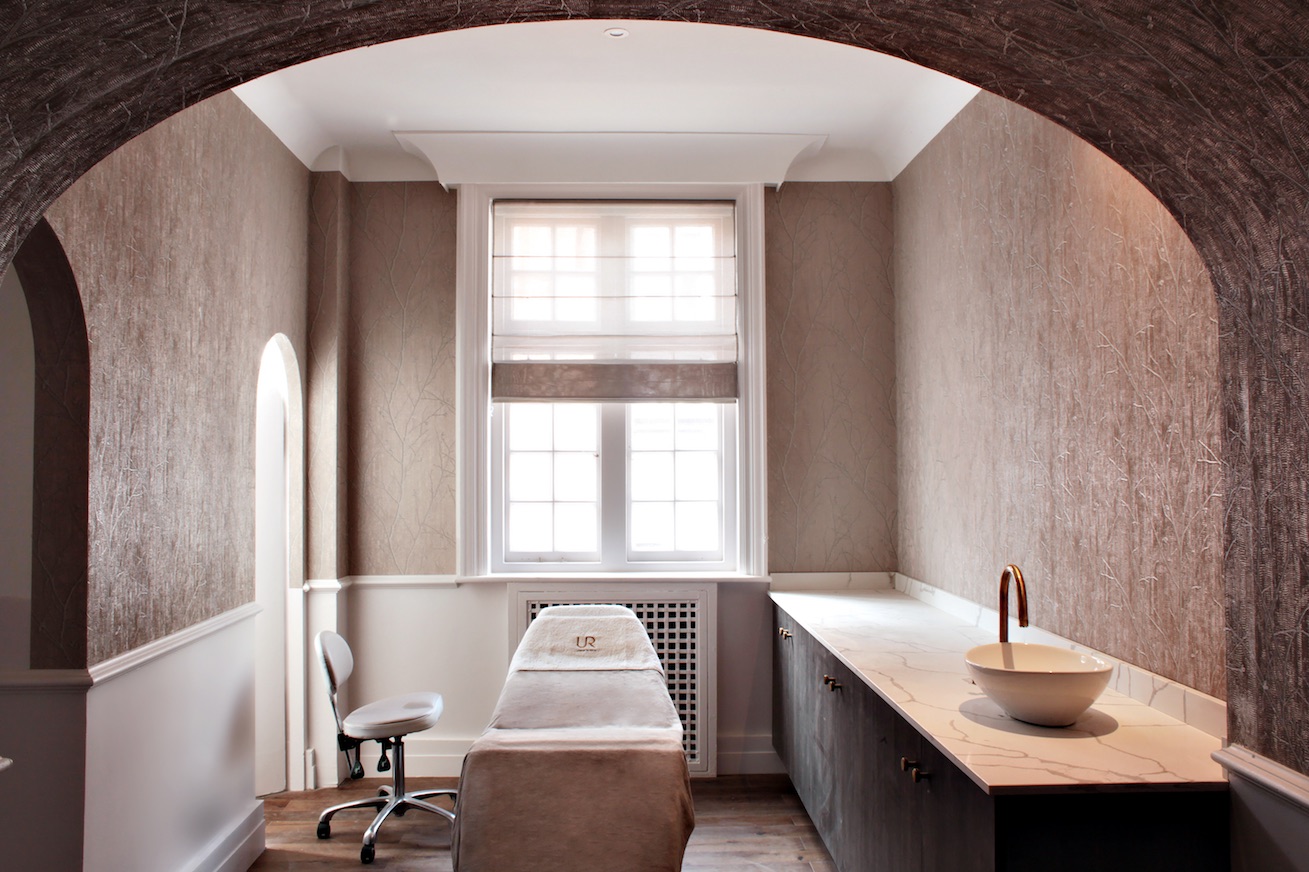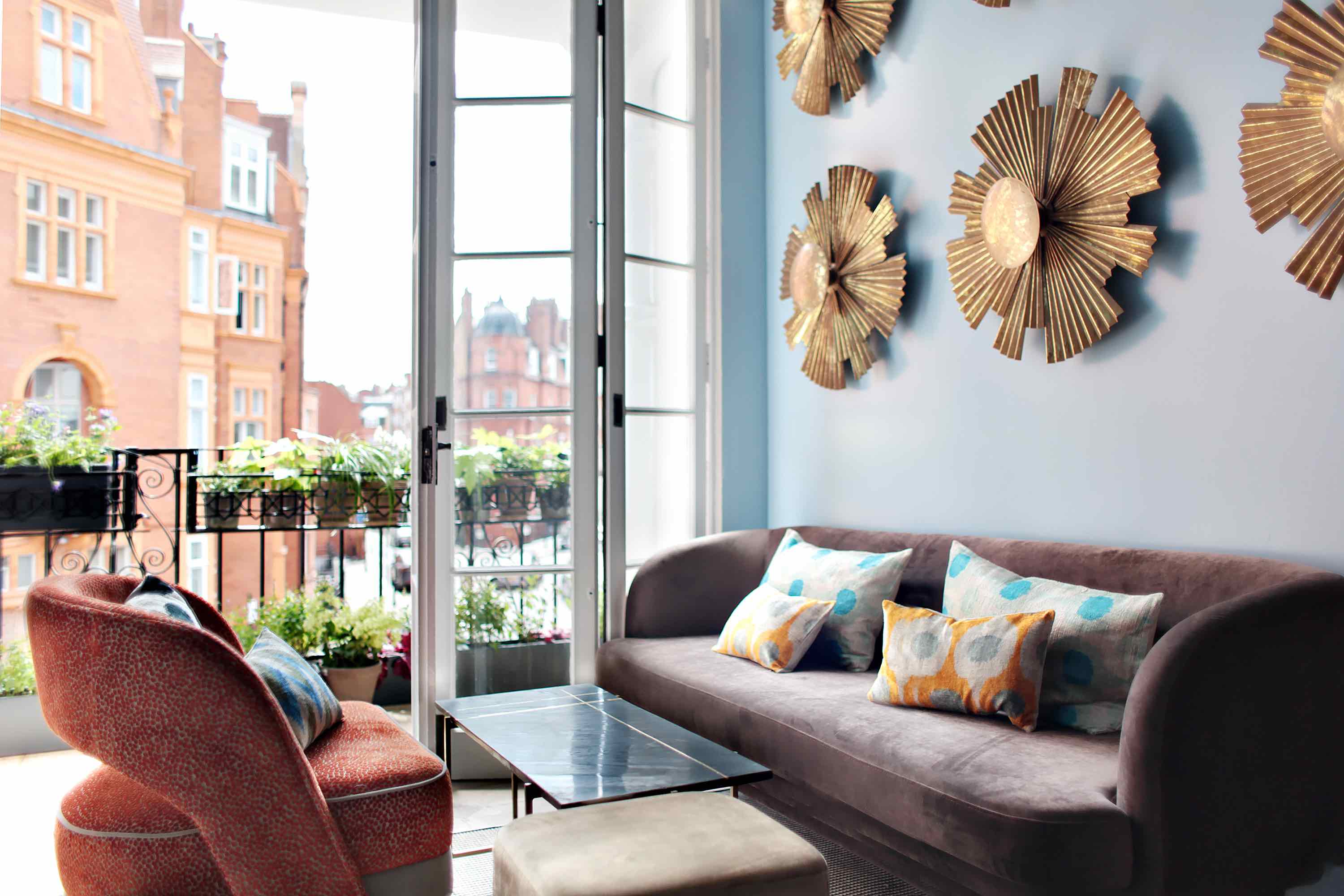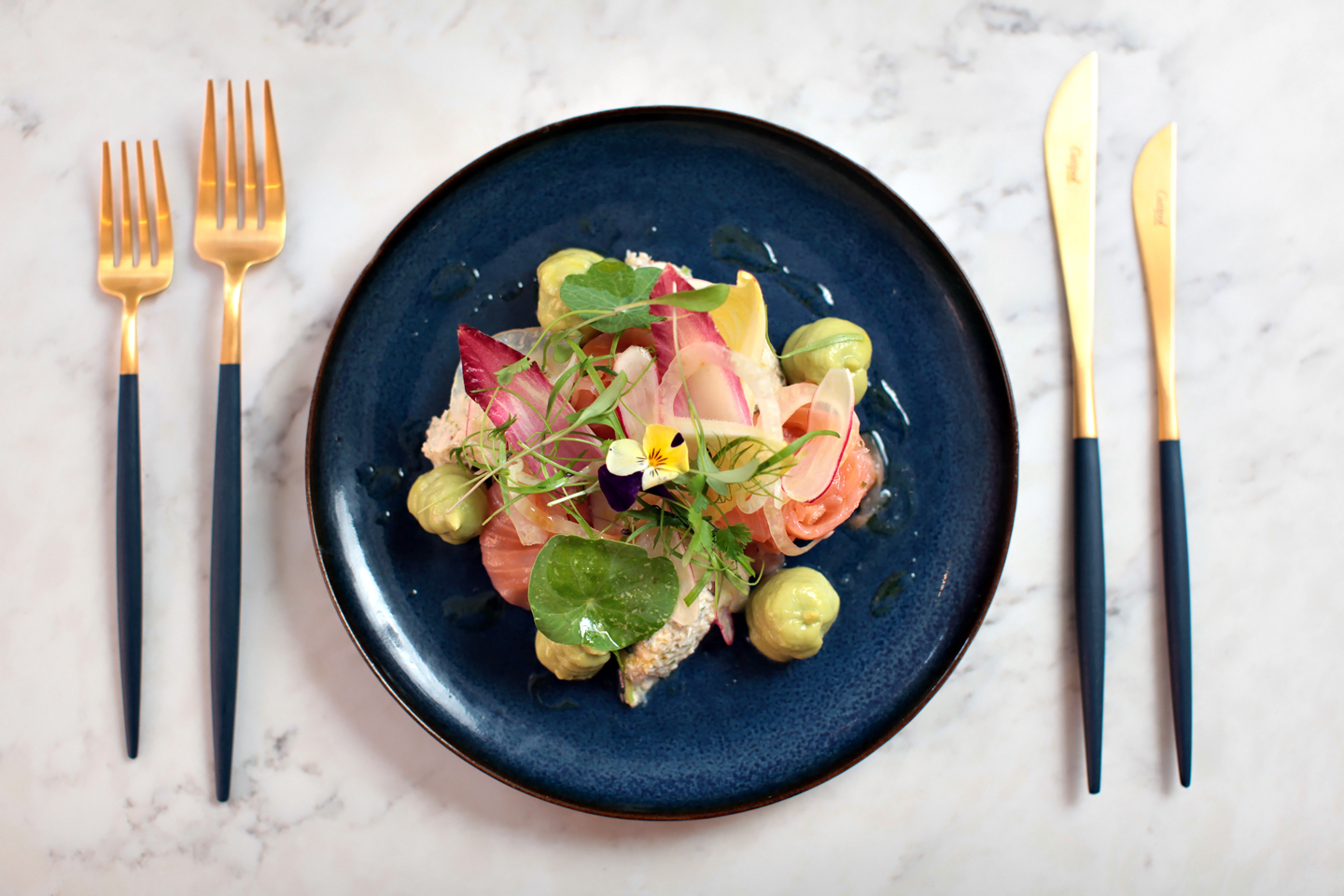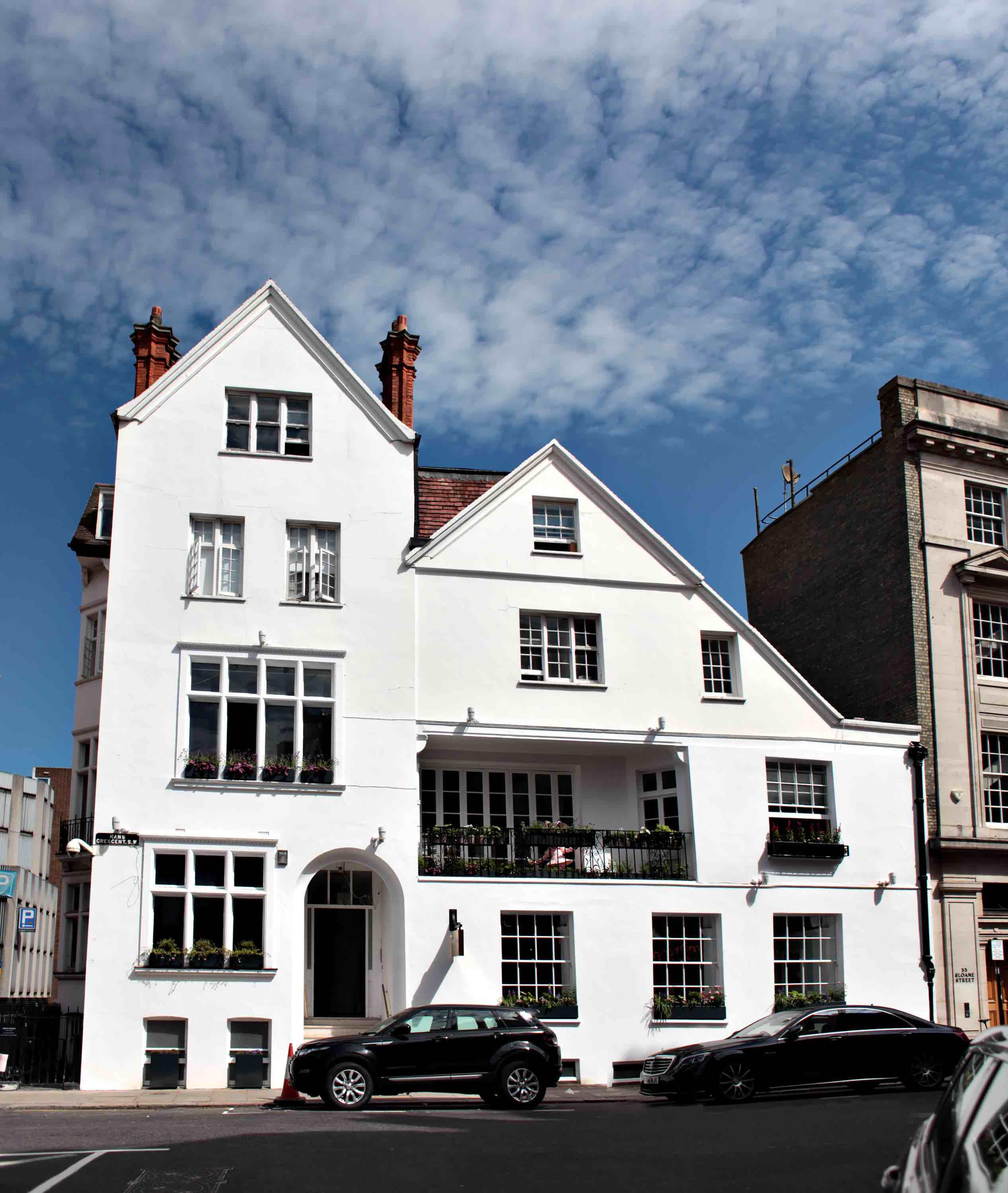Inside Urban Retreat at The White House: is it the ultimate beauty destination?

With so many businesses promising to be a one-stop-shop for clients' health, beauty and wellness needs, it can be a challenge to deliver this promise and do it authentically. Taking up the mantle and pledging to do it bigger and better than anyone else is Urban Retreat at The White House, which has just opened in Knightsbridge, London.
Spread across five floors in a 12,500sq ft private residence, the luxury spa and salon operator’s first-ever standalone location (previously it was based in Harrods department store) is nothing short of impressive, offering traditional and medical beauty treatments as well as edgier services such as tattoos and piercings, by the best people in the business. All of this is set within a stunning townhouse that feels more like a home than a salon, with marble fireplaces and comfy lounges.
“The White House has been designed to be this totally integrated place where beauty meets hospitality. Urban Retreat’s philosophy is about convenience and quality, with trusted therapists and a curated edit of brands, all under one roof. There isn’t anybody else who does that on this scale, which is what will set us apart,” explains managing director Reena Hammer.
What facilities and in-house practitioners does it have?
Covering health, nutrition and wellbeing, the flagship hosts a large array of facilities including a Cleanse Clinic in the basement offering blood and intolerance testing, infrared saunas, a private studio for yoga, meditation and personal training; contouring treatments and colonic hydrotherapy; while the ground floor comprises destination restaurant Flavour, a barbershop, and a large retail and make-up service area.
The first floor is home to hair stylist Frédéric Fekkai’s salon, which features a room for colouring, another for styling and a waiting lounge, plus a large nail studio in partnership with CND; while the second floor is focused on medical beauty with hair removal and laser, an IV lounge, three tattoo and piercing rooms, and access to specialists including dermatologists, acupuncturists, podiatrists and gynaecologists in five treatment rooms. The third floor offers more traditional beauty services such as brows, waxing, facials and massage in six spacious rooms.
This elaborate offering is on the same scale as some of the luxurious private members’ clubs that have been opening in the city, which all come with a hefty annual fee, but Urban Retreat won’t be following suit. “We’ve never been a membership space so why would I charge somebody for the privilege to come here? I want an inclusive energy,” explains Hammer. “As a customer, you’re important to us whether you come in to eat or just have your brows done.”

Images – top: Urban Retreat nail bar; above: Urban Retreat treatment room
Why did Urban Retreat leave Harrods and open a standalone?
Going solo is a bold move for the company, which used to be based in London’s luxury department store Harrods until its fifteen-year partnership ended in 2018. “It was the right time for both companies in that transition to walk away. Harrods wanted to run its own beauty business and that’s where the challenge was because we’ve done it for so long so it was like, 'well, we have a right to be here',” explains Hammer.
The move was also about Urban Retreat being in charge of its own destiny. “Harrods is an amazing store but when you work with somebody else you can’t just say ‘I want to do this’, there will always be restrictions,” she says. For example, five years ago, Urban Retreat asked the department store for online booking but it was something that they couldn’t make work. “It’s things like that which helped us make the decision,” adds Hammer.
Plus, Hammer wanted a premise that reflected Urban Retreat’s “intimate” philosophy. “Harrods has got a major footfall which is amazing but, and I don’t mean this negatively, it was kind of a luxurious train station,” says Hammer. “It was reflected in the volumes we were doing. We serviced 20,000 customers a month there, so you didn’t get to fully understand what they liked. It missed the personal touch.
“We’ve been around long enough that we knew we didn’t need to go back into a department store environment to create this new space. We had the confidence to do it ourselves.”

Image: One of the lounge areas
Who is Urban Retreat’s core client base?
Urban Retreat has invested “a couple of million” into the flagship which is reflected in its diverse range of services, so clients feel there’s something for them no matter their age. “When we left Harrods, our clients were evenly split across four age groups – teens to mid 20s, 25–35, 35–50 and 50 plus – and it’s what has made our job that more difficult because we have to cater to so much,” says Hammer. “We wanted it so a girl could come and have her first piercing while her mother enjoyed a massage.”
This level of diversity has put the business in good stead against its competitors, not only Harrods – which is just across the road – but other department stores, clinics and wellness destinations. “At Harrods, 70% of our business was local residents and the rest were tourists. Our core business was very different to the rest of the store which relies heavily on the transient customer,” she says. “Our plan at The White House is to gain a lot more of that local customer who wouldn’t engage in the big department store.”

Image: Cornish crab and salmon dish in restaurant Flavour
Why has Urban Retreat opted for niche brands instead of the big ones?
Urban Retreat has completely transformed its retail area in this new space, moving away from the big companies and offering a curated edit of up to 50 skincare, make-up and jewellery brands that you would struggle to find anywhere else. “We’ve got niche stuff and a lot of exclusives from places like America and Spain. It makes our retail selection special,” explains Hammer.
“As much as I love the big brands we used to work with, there’s no point stocking them because Harrods, Harvey Nichols or Space NK will have them. To make a product desirable, you should have to work to find it.” The brands stocked at The White House include UK exclusives Haute Custom Beauty and Frederic Fekkai’s The One haircare range.
Some of these brands will also be performing exclusive treatments in the flagship for a limited time, offering everything from vegan facials to more advanced services, some of which could become menu staples in the future. “We’re bringing in people to The White House who are amazing experts in their field, while allowing us to try their protocols and gauge the client response,” says Hammer. “If things work then it’s a scalable way to put the brand in as a more permanent offer.”
Hammer tells me the hardest challenge by far has been finding great people to deliver this experience-led journey. “Clients are extremely educated so their expectations are a lot higher and if your staff don’t know about product then they will get called out,” she says. “We’re a family business and our team is an extension of us, so we need the best.”
The perception of beauty not being seen as an attractive or well-paid industry to come into for a career has also made finding those dedicated and amazing therapists that little bit harder. “Some of them are too instantaneous, in terms of they want everything in five seconds or they think they can do it themselves – i.e. they’ve got Instagram so feel they don’t need to be part of an institution,” she adds.

Image: Urban Retreat at The White House exterior
What is The White House’s goal for the future?
The standalone has opened with 50 employees split across beauty, hair, front of house, nail techs, MUAs, retail and restaurant staff, but the plan is to increase this number to 100 by Christmas. Urban Retreat’s business plan works to a three-and-a-half year payback on return on investment (ROI) but Hammer has said that there’s always an element of reinvestment on the cards, whether that’s future building work or buying new equipment.
“The dream is not just to have a standalone Urban Retreat here in London but to be able to deliver this size and scale of business in other cities and countries. Something like this would work in Manchester or Edinburgh, or we could even take it to a Paris or New York type environment,” says Hammer. “The goal is to settle in here first and go from there.”
What do you make of Urban Retreat at The White House? Leave your comments below.
In other news, a £10 million countryside resort spa is opening in Cheshire this summer promising to offer the ultimate wellness experience.
Images: Paul Khera


